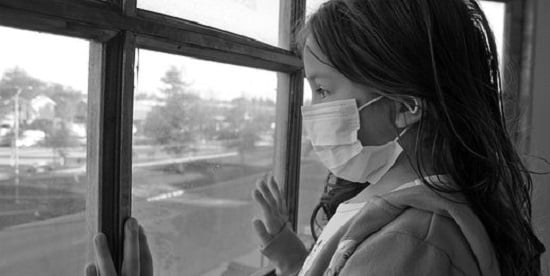It has stopped our lives: Families share the impact of COVID-19
Media release
Australian families have opened up about the way COVID-19 has shaped their lives in a national survey that asked parents to share the experience of living through the first national lock-down in April.
From "it has stopped our lives" to "spending more time together has strengthened bonds", the Deakin University-led COVID-19 Pandemic Adjustment Survey (CPAS) reveals the varied social, emotional and financial toll of the pandemic control measures on families across the nation.
Research lead Dr Elizabeth Westrupp, senior lecturer and clinical psychologist in Deakin's Centre for Social and Early Emotional Development (SEED) in the School of Psychology, said many families found the lock-down enormously stressful while others found ways to enjoy the changed circumstances.
"The extremes at both ends of the COVID-19 experience spectrum were noteworthy," Dr Westrupp said.
"Some parents reported very concerning mental health challenges in themselves and their children as a result of the restrictions and financial stress.
"In contrast, a minority of parents reported finding meaning, and even delight, in the situation, finding new hobbies and opportunities to connect with immediate family members."
The CPAS asked 2,365 parents to detail the impacts of the lock-down on family life between 8 April and 28 April this year. It was one of the largest cohorts surveyed at the time and involved parents with at least one child up to 18 years old.
The research team identified six main themes:
1. Boredom, depression and suicide: A spectrum of emotion
2. Families missing the things that keep them healthy
3. Changing family relationships: The push-pull of intimacy
4. The unprecedented demands of parenthood
5. The unequal burden of COVID-19
6. Holding on to positivity.
Dr Westrupp said the responses from parents were powerfully articulated:
"The children's mental health has significantly suffered. 7 year old cries herself to sleep most nights and 5 year old has become very aggressive towards her sisters and I." Mother of three children.
"Struggle with 2 schoolkids and 2 toddlers, too much work, too exhausted, stressed, mentally draining, physically exhausting, sometimes I get depressed, worried if me or partner might catch the virus, can't sleep at night." Mother of four children
"It's made me realise that my 'marriage' is over. Work (for him) will always come first." Mother of one child.
"Most days I now miss meals so they (children) can eat." Mother of two children.
"I think it has helped improve work-life balance, and I get to spend more time with the kids. And I spend more time with my children which is awesome." Father of two children.
"It's actually improved our relationships as we have time to work through issues." Mother of three children.
"We mostly stay at home and play in the back or front yard. We also play games inside, cook and clean or tidy up mess. We have used the time stuck inside to rearrange the home and do a spring clean." Mother of three children.
There were also many parents who identified mixed emotions about the situation. For example:
"Lots of quality time. Lots of non-quality time." Mother of two children.
In a separate analysis of the CPAS data, the researchers looked at factors that boosted resilience in families. They found parents who admitted to feeling lonely were more likely to experience depression and other poor mental health outcomes, such as anxiety and stress.
"We wanted to identify those factors that build resilience and help people bounce back after adversity and major stress," Dr Westrupp said.
"Not surprisingly, we found parents had a greater capacity to cope if they were less stressed, less anxious and less depressed.
"Their levels of resilience were also much higher if they identified as extraverts, or saw themselves as outgoing and social.
"And partners played a significant role in how people coped. People with supportive partners were more resilient and less depressed.
"But the reported levels of loneliness were surprising as many parents admitted feeling lonely even when they had family members and children in the home.
"We assume that only those people living alone struggled with feelings of loneliness, but this tells us the sense of isolation was more widely felt.
"We now understand that to improve the mental health of parents during future pandemics or major disasters we will need to focus on reducing loneliness, and understand that those under financial hardship and dealing with pre-existing difficulties are especially in need of policy designed to support them," Dr Westrupp said.
The two pieces of CPAS analysis are being published as "Finding the Power Within: Is Resilience Protective Against Symptoms of Stress, Anxiety, and Depression in Australian Parents During the COVID-19 Pandemic?" (lead author, Dr Antonina-Walus) and "From 'It has stopped our lives' to 'Spending more time together has strengthened bonds'; The varied experiences of Australian families during COVID-19" (lead author, Dr Subhadra Evans).

